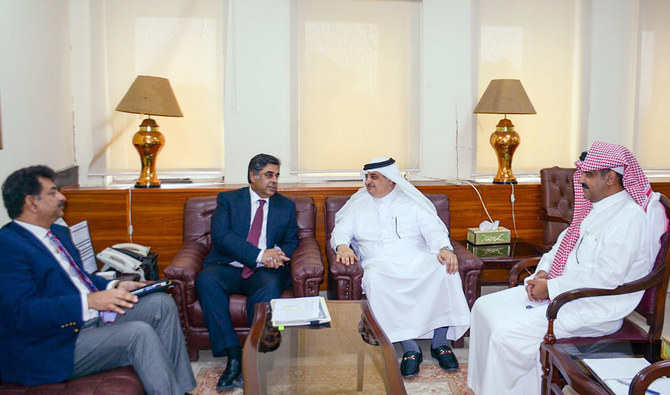LAHORE: An Australian couple on a quest to drive from London to Melbourne in a 102-year-old car were forced to put the brakes on their journey because of an unlikely obstacle: Pakistan’s heat wave.
Langley Kidby, 77, and Beverley Kidby, 71, are veteran motor adventurists who have driven through over 80 countries and covered tens of thousands of miles on a journey that aims to emulate legendary Australian cyclist, adventurer and filmmaker Francis Birtles who became the first man in 1927 to drive from London to Melbourne.
The Kidbys were so committed to emulating Birtles they even bought the 1922 Bean car from a museum that the late Australian cyclist drove.
The husband-wife duo began their journey on April 1 and crossed Europe, driving from Turkiye to Iran from where they entered Pakistan through its southwestern Balochistan province. The plan was to drive all the way to Pakistan’s eastern city of Lahore and then travel onwards to India through the Wagah border.
But the scorching temperature in Sukkur in the southern Sindh province threw a spanner in the works.
Temperatures have risen this month above 125.6 degrees Fahrenheit (52 degrees Celsius) in Sindh, the highest reading of the summer and close to the country’s record high amid an ongoing heat wave.
“When we crossed into Pakistan, we had a heatwave here and we had 55 degrees,” Langley told Arab News, explaining that the Bean did not have air conditioning. “And the car got very hot … So, it was a very, very grueling few days, all the way to Sukkur, and then on to Lahore.”
Beyond this point, the heat made it difficult to drive through Sibi city in Balochistan and Sukkur in Sindh and the couple decided to have the car towed from Sukkur to Lahore via a truck from where it will continue the journey onwards to India, Malaysia, Singapore and then finally back to Australia.
‘FANTASTIC PEOPLE’
Mohsin Ikram, the president of the30-year-old Vintage and Classic Car Club of Pakistan (VCCCP) that pays homage to “automobiles of a bygone era,” was the chief coordinator for the Australian couple’s car ride across Pakistan.
Speaking to Arab News, Ikram said his organization was affiliated with the Fédération Internationale des Véhicules Anciens (FIVA), the worldwide federative association of historic automobile clubs.
“So FIVA got in touch with me and said this couple wants to do this journey and Pakistan is on their route,” Ikram told Arab News. “But they are a bit concerned about people advising them not to go.”
Ikram assured the couple they would remain safe on their journey through Pakistan and sure enough, the Kidbys leave Pakistan today, Friday, as happy customers.
“Oh, it’s fantastic, these are some of the friendliest people we’ve ever met,” Beverley said. “That to me is the best part of the trip, meeting the people and finding out how welcoming and lovely they are.”
She said the couple traveled with security and were escorted at different locations by the paramilitary Levies forces, army and police until they arrived in Lahore.
The couple were also all praise for Pakistani mechanics.
“In several countries, we found mechanics who can fix almost anything at all and because we can’t get spare parts for this car, so they make some spare parts for us,” Langley said. “And we found this in Iran, we found this in Pakistan, very, very smart mechanics.”
Sitting next to her husband as they drove off once again in Lahore, Beverley said she would take a positive message about Pakistan wherever she went in the future.
“I would like to recommend [to other foreigners] to come here and see for themselves what a wonderful country it is and the people, how friendly they are,” she said.
Ikram urged the government to review its policies on tourism.
“If [the government] can make things easier [and safer] for them,” he said, “we can raise motoring tourism by such a large amount, Pakistan can benefit a lot from this.”
















